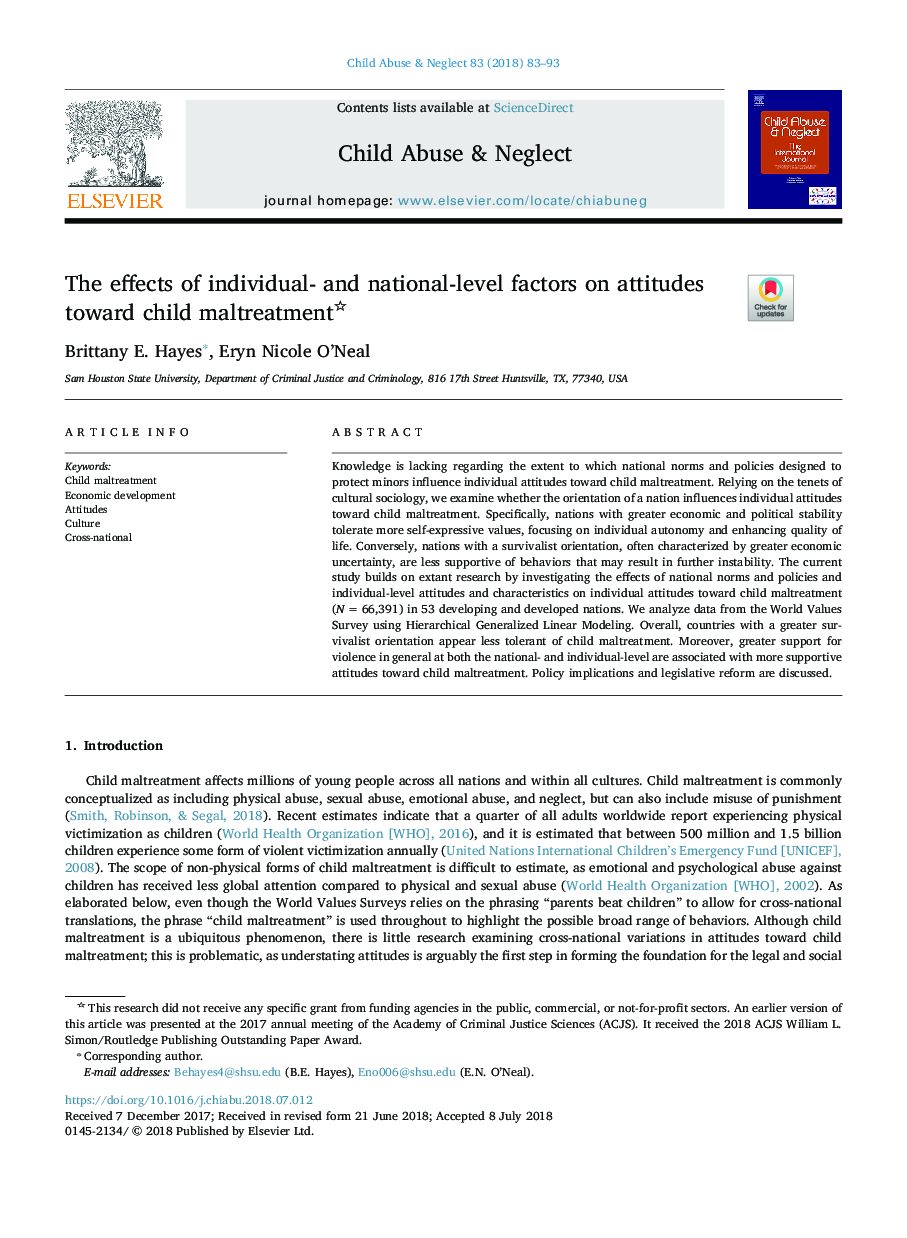| Article ID | Journal | Published Year | Pages | File Type |
|---|---|---|---|---|
| 6831750 | Child Abuse & Neglect | 2018 | 11 Pages |
Abstract
Knowledge is lacking regarding the extent to which national norms and policies designed to protect minors influence individual attitudes toward child maltreatment. Relying on the tenets of cultural sociology, we examine whether the orientation of a nation influences individual attitudes toward child maltreatment. Specifically, nations with greater economic and political stability tolerate more self-expressive values, focusing on individual autonomy and enhancing quality of life. Conversely, nations with a survivalist orientation, often characterized by greater economic uncertainty, are less supportive of behaviors that may result in further instability. The current study builds on extant research by investigating the effects of national norms and policies and individual-level attitudes and characteristics on individual attitudes toward child maltreatment (Nâ¯=â¯66,391) in 53 developing and developed nations. We analyze data from the World Values Survey using Hierarchical Generalized Linear Modeling. Overall, countries with a greater survivalist orientation appear less tolerant of child maltreatment. Moreover, greater support for violence in general at both the national- and individual-level are associated with more supportive attitudes toward child maltreatment. Policy implications and legislative reform are discussed.
Related Topics
Health Sciences
Medicine and Dentistry
Perinatology, Pediatrics and Child Health
Authors
Brittany E. Hayes, Eryn Nicole O'Neal,
